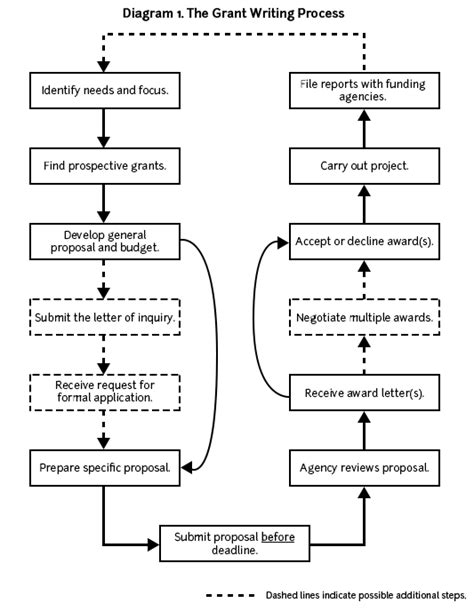Introduction
The Hagan family has a long history of supporting healthcare research through their charitable foundation. The Hagan Grant Program provides funding for a wide range of research projects, including clinical trials, basic science research, and health services research. This article provides a comprehensive overview of the Hagan Grant types and how to apply for funding.

Types of Hagan Grants
The Hagan Grant Program offers four types of grants:
- Research Grants: These grants support research projects that have the potential to significantly advance the understanding and treatment of disease. Research grants are typically awarded for periods of up to three years and can range in size from $50,000 to $500,000.
- Pilot Grants: These grants support small-scale research projects that have the potential to generate preliminary data for larger research projects. Pilot grants are typically awarded for periods of up to one year and can range in size from $10,000 to $50,000.
- Career Development Grants: These grants support the career development of promising early-career researchers. Career development grants are typically awarded for periods of up to three years and can range in size from $50,000 to $100,000.
- Equipment Grants: These grants support the purchase of equipment that is essential for research projects. Equipment grants are typically awarded for periods of up to one year and can range in size from $10,000 to $50,000.
Eligibility Criteria
To be eligible for a Hagan Grant, applicants must meet the following criteria:
- Be a non-profit organization or institution
- Have a strong track record of research in the relevant field
- Have a well-defined research plan
- Have the necessary resources to carry out the research project
Application Process
The Hagan Grant application process is competitive. Applicants are encouraged to submit their applications well in advance of the deadline. The application process includes the following steps:
-
Letter of Intent: Applicants must first submit a letter of intent that outlines the proposed research project. The letter of intent should be no more than two pages long and should include the following information:
- Title of the proposed research project
- Name of the principal investigator
- Abstract of the proposed research project
- Proposed budget for the research project
-
Full Proposal: If the letter of intent is approved, applicants will be invited to submit a full proposal. The full proposal should be no more than 10 pages long and should include the following information:
- Introduction
- Background and significance of the proposed research project
- Research plan
- Methods
- Expected outcomes
- Budget
- References
Review Process
Hagan Grant applications are reviewed by a panel of experts in the relevant field. The review panel evaluates applications based on the following criteria:
- Scientific merit of the proposed research project
- Feasibility of the proposed research project
- Impact of the proposed research project
- Qualifications of the principal investigator and research team
Award Process
Hagan Grants are awarded on a competitive basis. The review panel makes recommendations to the Hagan family, who make the final decision on which projects to fund. Awards are typically announced in the spring or summer.
Reporting Requirements
Grantees are required to submit annual progress reports to the Hagan family. The progress reports should provide an update on the research project and its progress towards the stated goals. Grantees are also required to submit a final report at the end of the grant period.
Contact Information
For more information about the Hagan Grant Program, please contact the Hagan Foundation at (555) 555-1212 or [email protected].
| Grant Type | Funding Amount | Duration |
|---|---|---|
| Research Grants | $50,000-$500,000 | Up to 3 years |
| Pilot Grants | $10,000-$50,000 | Up to 1 year |
| Career Development Grants | $50,000-$100,000 | Up to 3 years |
| Equipment Grants | $10,000-$50,000 | Up to 1 year |
| Milestone | Deadline |
|---|---|
| Letter of Intent | January 15 |
| Full Proposal (if invited) | April 1 |
| Award Announcement | Spring/Summer |
| Mistake | How to Avoid |
|---|---|
| Not submitting a compelling letter of intent | Clearly articulate the significance and feasibility of your proposed research project. |
| Not following the application instructions carefully | Carefully review the application guidelines and ensure that your proposal meets all of the requirements. |
| Submitting a proposal that is not well-written and organized | Take the time to write a clear and concise proposal that is easy to read and understand. |
| Not getting feedback on your proposal from colleagues | Ask colleagues to review your proposal and provide feedback before submitting it. |
| Strategy | How to Implement |
|---|---|
| Identify a compelling research question | Conduct a thorough literature review to identify a research question that has the potential to significantly advance the understanding and treatment of disease. |
| Develop a well-defined research plan | Outline the specific aims of your research project, the methods you will use to achieve these aims, and the expected outcomes. |
| Build a strong research team | Assemble a team of researchers with the expertise and experience necessary to carry out the research project successfully. |
| Get feedback on your proposal from colleagues | Ask colleagues to review your proposal and provide feedback before submitting it. |
| Submit your proposal well in advance of the deadline | Give yourself plenty of time to prepare a high-quality proposal. |
